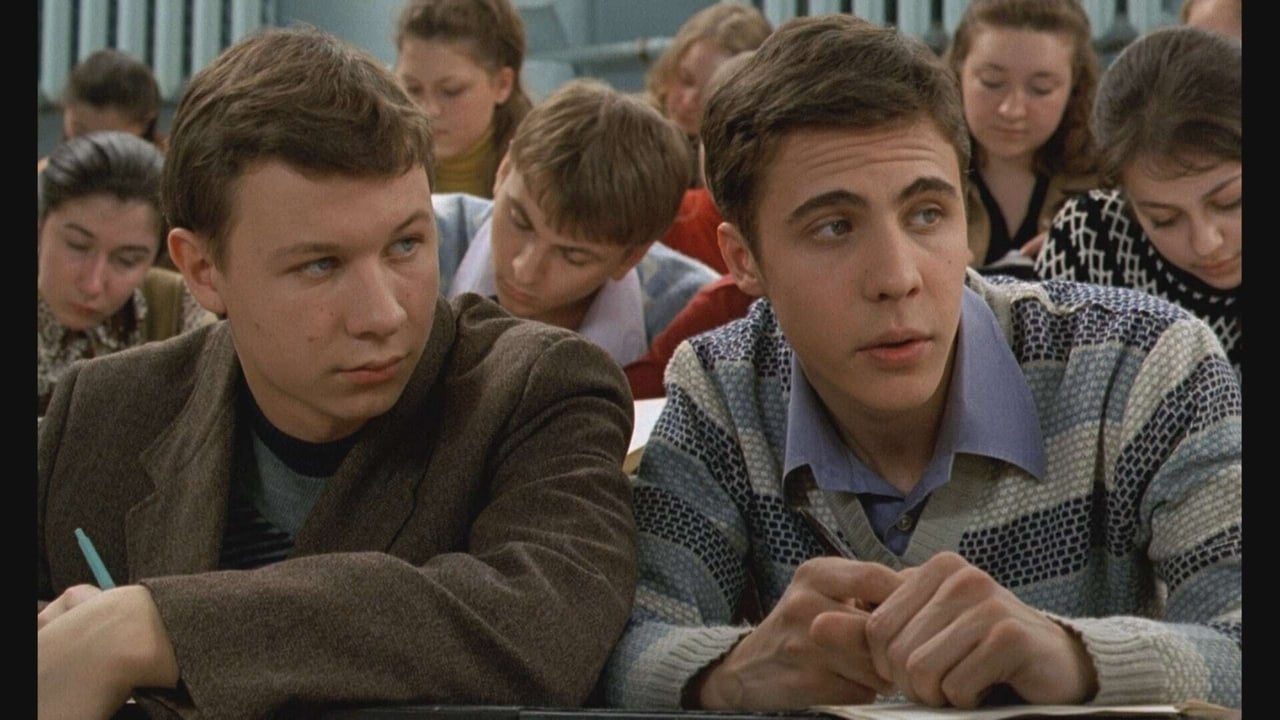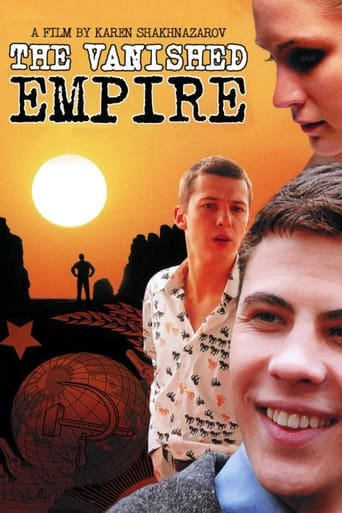

Karen Shakhnazarov's films are all, in a sense, "period pieces." They find a solid place in international film festival culture without ever quite winning the prize. "Vanished Empire" had a particularly personal ring for me, since I began my long-time study in and out of Soviet/Post-Soviet Russia in the period this film depicts (circa 1974), and had an uncomfortably eerie sense of deja-vu throughout the film. Searching for an American parallel, I came up with "American Graffiti," where Richard Dreyfus's character is caught between remaining in his Middle-American hometown or heading off to an Eastern college (as he does) and returning many years later to write about it.Shakhnazarov's film has a similarly autobiographical feel to it, although his young hero ends embracing, rather than rejecting, the culture from which he emerged: the Russian intelligentsia. The meticulous reproduction of the Soviet 1970's offers a vaguely satiric self- portrait, hinting at the educated class's role in preserving world culture and history while rejecting indoctrination into Soviet politics and values. Therefore, the young hero, Sergey's true love is not, as he believes, the "good girl," Lyuda, who prefers the ACTUAL recording of "Swan Lake" (a covert reference to the ballet's role in service to the state) contained in the black market record jacket of the Rolling Stone latest release to the Western contraband recording that Sergey has paid dearly for, expecting to win her affections. Sergey's instinctual pull towards rebellion keep him from romanic fulfillment, but bring him closer to his true self.Instead, Sergey comes to love and honor his dying mother, and follows his grandfather's advice by making a pilgrimage to the archaeological site that represented his family's life's work.In the ancient desert sands, Sergey finds the source of his earlier hallucinatory, drug-induced vision.Emblematic details (cars, records, ancient trinkets) speak to viewers with Shaknazarov's background. Reading them properly, however, requires something of the education Shaknazarov's hero gained in the intervening years between the "coming of age" story and the film's contemporary epilogue.
... View MoreThe story line in this film starts to wear thin after about 30-40 minutes. It takes place in the Soviet Union in the mid-70's and we get an interesting view of life there. There is a black-market, students are bored in the class-room and they listen to rock-and-roll.Unfortunately the story surrounding this is rather simple – boys are trying to meet girls with the usual results. The on-again off-again relationship between the two main protagonists became strained after the 2nd or 3rd break-up. It just becomes a little repetitive and boring. The acting is good but the story lacks any progression after the first 45 minutes.
... View MoreThis is the kind of film which captures the spirit of the age, which gives us an excellent cast playing characters who are all too real, in their world, over 35 years ago. Everything that one could have heard about Leonid Brezhnev's Soviet Union can be found here. Compared to today, it was an era where life was simpler, yet offered far less opportunities than the West. Despite the differences, by the end of this film, it is very easy to relate to the characters, especially Sergei Narbakov, the protagonist, and his friend, Stepan Molodtsov. Our humanity is a shared experience.The outstanding performance by the Armenian actor, Armen Dzhigarkhanyan, must not be overlooked, either. Alternating between old wisdom and very dry humor, he stands out as Sergei's grandfather. I have already recommended this film to friends who share with me an equal curiosity about the USSR, an acronym now consigned to history books.
... View MoreLiving in a country where Russian cinema is something foreign, not only in terms of language but also because the import of movies from all of Eastern Europe is quite poor, let me just begin by saying that this movie is a true gem discovered.Advertised by some as a common love story, "The Vanished Empire" should be seen as much more. While love, or perhaps rather infantile teenage crushes is present throughout, director Karen Shakhnazarov tells the tale of a Russia torn between conservative party-political-values and new western influences featuring the tunes of Shocking Blue, Deep Purple and jeans that begs to deviate from otherwise more traditional clothing. All this started to penetrate a crowd of youths in the early 70's, it just, well, seemingly was a bit more difficult for protagonist Sergei with pals Kostya and Stepan than the contemporary American teen.Both script, directing and cinematography holds a great deal of quality. Try to catch this! Don't let Timur Bekmambetov's "Night Watch" be the only Russian movie you've seen for the last four years - and the next four to come...
... View More